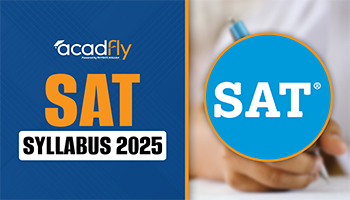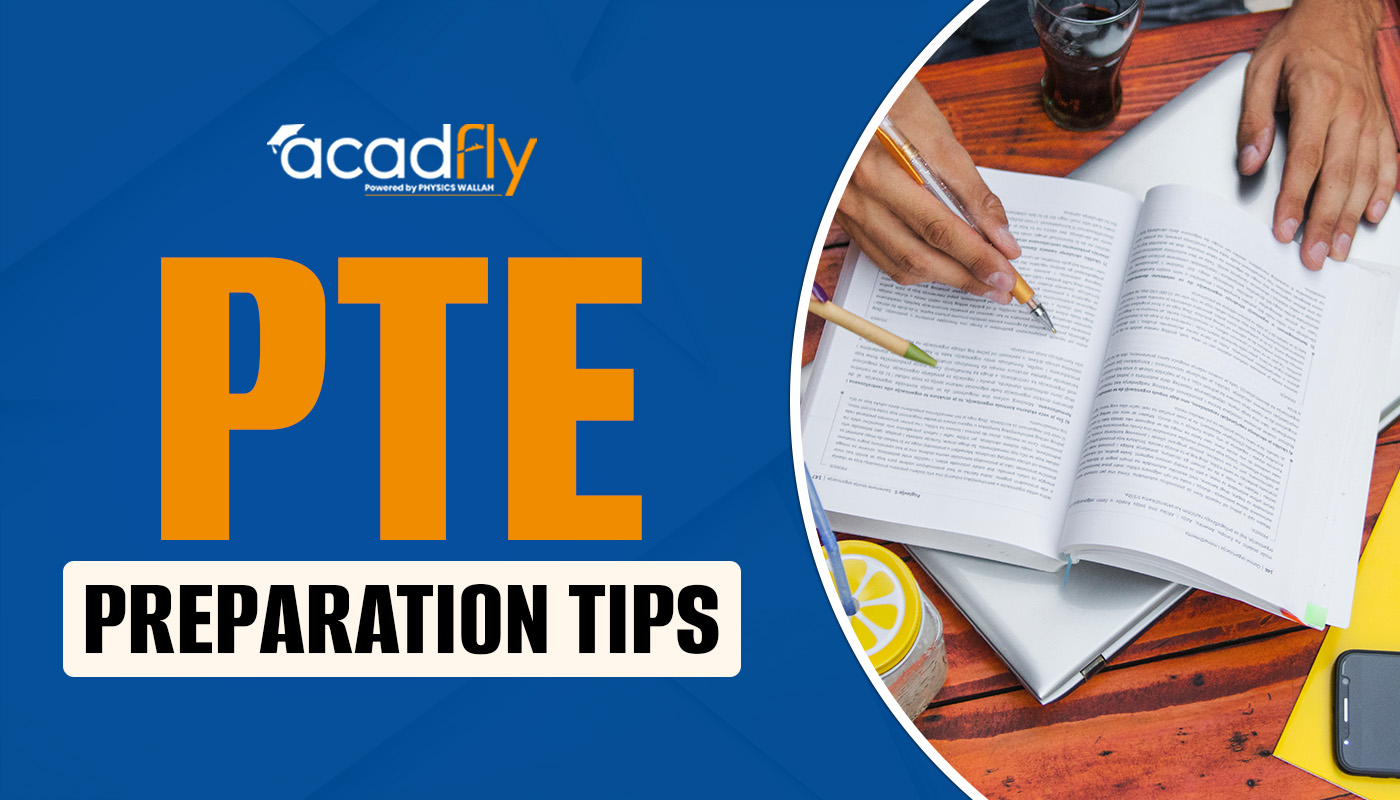
LSAT abroad syllabus: Naturally, it will look confusing to know the requirements of attending an international law school, and one of the more common questions is the LSAT abroad syllabus. Is the test material different for non-US or Canadian test-takers? This introduction is intended to lay minds to rest immediately: the Law School Admission Test (LSAT) abroad syllabus is the same globally.
Its core components—Analytical Reasoning, Logical Reasoning, and Reading Comprehension—are uniform to deliver an equal measure of capabilities to all the test-takers regardless of their geographical location. The following article will present a detailed description of the LSAT abroad syllabus and what can be expected by international applicants.
What is the LSAT?
The Law School Admission Test, or LSAT, is a recommended test that is a standard of the law school application process globally, meant to assess skills fundamental to success in law school, like critical reading, analytical reasoning, and logical reasoning. Familiarity with the LSAT abroad syllabus is not simply knowing what is going to be examined; it is an understanding of the competence being tested beneath the surface, and preparing well for every section.
LSAT Abroad Syllabus 2025 Overview
The LSAT is typically administered with three scored multiple-choice sections, an unscored experimental section (may be any of the three types), and an unscored writing sample.
Below is a brief overview of the LSAT Abroad syllabus
LSAT is a globally recognized and standardized examination; its core content, structure, and the skills it assesses—such as logical reasoning, analytical reasoning, and reading comprehension—remain consistent, regardless of where the test is administered. The total test duration, including breaks, can be approximately 3 hours and 30 minutes.
LSAT Abroad Syllabus Overview |
||||
|
Section Name |
Approximate Number of Questions |
Time Allotted |
Description |
Scored |
|
Logical Reasoning |
24-26 questions (per section) |
35 minutes |
Comprises short passages followed by questions that require you to analyze arguments, identify assumptions, draw conclusions, detect fallacies, and strengthen or weaken points. |
Yes |
|
Analytical Reasoning |
4 parts with 5-7 questions each |
35 minutes |
Presents a set of rules or conditions and requires you to deduce information and relationships. This section tests your ability to understand structure and implications. |
Yes |
|
Reading Comprehension |
4 passages with 5-8 questions each |
35 minutes |
Consists of four long passages (one of which is a comparative reading set of two shorter related passages) followed by questions about the passage's main idea, specific details, inferences, and author's purpose/tone. |
Yes |
|
Experimental Section |
Approximately 24-27 questions |
35 minutes |
An unscored section identical in format to one of the three scored sections (LR, AR, or RC). It is used by LSAC to test new questions for future exams. You will not know which section is experimental. |
No |
|
Writing Sample |
1 prompt |
35 minutes |
Requires you to write an essay arguing for one of two given positions while critiquing the other. It is unscored but sent to law schools along with your LSAT score. |
No |
Understanding the LSAT Abroad Syllabus
The LSAT is not a test of memorized information or law know-how. It strongly measures skills crucial to law school success:
- Reading and Comprehension: Your skill for reading complex material, for spotting dominant themes, and for grasping subtle arguments.
-
Analytical Skills: Your ability to set up relationships, to solve complex rules, and to arrive at a conclusion from a given set of conditions.
-
Logical Reasoning: Your ability to analyze arguments, identify weaknesses, make inferences, and arrive at sound conclusions.
-
Argumentation: Your ability to make well-supported arguments, argue on points of conclusion, and counter opposing arguments.
-
Every component of the LSAT study sequence is crafted to test these abilities under different circumstances, offering law schools a complete evaluation of your potential.
Also read: Pursuing a Law Degree in Canada: Top Law Schools and Specializations
LSAT Abroad Syllabus Section-Wise Topics
However, each section does contain a detailed description of the kinds of questions and skills you'll need to master.
A closer examination of each section will show you what kinds of questions and abilities you'll have to learn to do well.
Logical Reasoning (LR)
Usually the most self-evident category, since it is the only one that occurs twice on the test, Logical Reasoning tests your capability of comprehending, analyzing, and criticizing arguments. Every question consists of a brief passage (the stimulus) containing an argument or a fact matrix, and a question where you are requested to do something with regard to the stimulus.
Key Topics and Question Types for LSAT Abroad Syllabus:
-
Structure of an Argument: Recognizing conclusion, premises, and assumptions.
-
Assumption Questions: Determining unstated assumptions required for the conclusion to follow the argument logically.
-
Strengthen/Weaken Questions: Determining evidence that would make an argument's conclusion stronger or weaker.
-
Flaw in the Reasoning Questions: Determining fallacies or errors in reasoning in an argument. Fallacies are ad hominem, circular reasoning, false dilemma, appeal to emotion, equivocation, etc.
-
Inference Questions: Creating the best possible conclusion that is warranted by the information presented in the stimulus.
-
Parallel Reasoning/Flaw Questions: Determining an argument with the same logical form or fallacy as the stimulus argument.
-
Principal Questions: Determining a general rule or principle under which the argument is illustrated or justified.
-
Role of Statement Questions: Determining the role of a particular statement in the argument.
-
Point at Issue Questions: Determining a single point where two speakers would differ.
-
Skills Tested: Deductive and inductive reasoning, recognizing logical fallacies, analysis of evidence, comprehension of conditional statements.
Analytical Reasoning (AR) / Logic Games (LG)
This part of the LSAT Abroad syllabus asks you to sort information and make inferences from a set of given rules. Every game is an example scenario and a set of conditions or limits. You will be able to apply these rules to figure out relationships, place things in order, or place elements into groups.
Key Topics:
-
Sequencing/Ordering Games: Putting things in order (e.g., individuals in a line, events in chronological order).
-
Grouping/Distribution Games: Placing things into sets or categories (e.g., students into classes, artwork into museums).
-
Matching Games: Matching pieces from two or more different categories (e.g., doctors to hospital and specialty).
-
Hybrid Games: Sequencing, grouping, or matching-based combinations.
-
Trained Skills: Deductive reasoning, conditional logic, systematic thinking, detail-oriented, capacity for inferring new rules from prior ones, diagramming. Mastery of good diagramming methods is the key to this section.
Reading Comprehension (RC)
It tests your skill in reading difficult informational passages, like the ones you will be reading during law school. You get four lengthy passages, typically from different fields of study like law, humanities, natural sciences, and social sciences. One of the four passages would typically be a comparative reading pair, i.e., two short but connected passages.
Key Questions
-
Main Idea Questions: Identifying the primary theme or thesis of the passage.
-
Specific Detail Questions: Locating direct information that has been mentioned in the passage.
-
Inference Questions: Drawing implied conclusions based on the text logically.
-
Author's Purpose or Tone Questions: Identifying why the author composed the passage or the tone of the author towards the subject.
-
Passage Structure Questions: Establishing how the passage is organized and how the different sections are pieced together.
-
Vocabulary in Context Questions: Identifying what a word or phrase means when it is used within the passage.
-
Application Questions: Applying a principle or idea stated in the passage to a new context.
-
Strength/Weakness Questions: Identifying what would strengthen or weaken something when used as an argument within the passage.
-
Skills Assessed: Active reading, argument and evidence identification, information synthesis from sources (comparative passages), understanding rhetorical strategies, critical reading of the text, speed reading with comprehension.
Writing Sample in LSAT Abroad Syllabus
Ungraded, but a permanent fixture in your LSAT record, is the Writing Sample. You will be provided with an argument that outlines a choice situation where there are two alternatives. You will have to persuade in favor of one of them and successfully attack the other based on a list of criteria given. This is the vital segment in the LSAT Abroad syllabus.
Key Skills Evaluated
Argumentative composition, coherence, concision, critical thinking, persuasive communication, grammar, and spelling. Law schools use this to evaluate your writing and communication skills.
Tips for Preparing LSAT AbroadSyllabus
Successful LSAT preparation involves rigorous, regular, and systematic effort.
Plan and Schedule Your Study Timetable
Allow yourself ample time – ideally 3-6 months – to study the syllabus in depth. Prepare a rational study plan that assigns individual time to each section.
Use an Official LSAT Abroad Study Syllabus
Use only the official PrepTests (previous tests) made available by the Law School Admission Council (LSAC) on its LawHub system. They represent the best possible simulation of the real LSAT and are a essential practice. Avoid taking unauthorized study materials as your starting point.
Conquer Each Section Methodically
Logical Reasoning: Conquer argument structure, premises/conclusions recognition, and get exposed to typical fallacies. Practice diagramming tough conditionals.
Analytical Reasoning (Logic Games): Highly learnable section. Create and hone good diagramming techniques for each type of game. Practice drawing conclusions from rules.
Reading Comprehension: Practice active reading. Mark passages, identify main points and supporting evidence, and author's tone and purpose. Practice developing reading speed without loss of understanding.
Practice with Full-Length Timed Tests
Practice with complete, timed LSAT PrepTests regularly in test-simulating conditions. This creates endurance, exposes timing problems, and replicates the actual test-taking situation.
Review Thoroughly (The Most Valuable Step!)
After every practice test or exercise, carefully review every question, correct or incorrect.
For incorrect ones
Notice why your answer was incorrect and why the right answer is right. Make precise the logical fallacy or misunderstanding.
Find Your Weaknesses
Keep track of your performance by question type and section. Practice more to become better in the areas where you always perform poorly.
Create a Test-Day Plan
Master the art of skipping hard questions at the right time, time management within sections, and making intelligent guesses at the right moment. The foreign syllabus of the LSAT is diversified with a broad scope of topics, so it will be simple to master the art of pacing yourself.
Become Familiar with the Electronic Format
The LSAT is mostly computer-based. Practice on the web interface of LSAC LawHub to familiarize yourself with functionalities such as highlighting, underlining, and navigating.
Don't Neglect the Writing Sample
Even though it is not scored, a poorly written essay will not reflect favorably on your application. Practice writing clear, coherent, and compelling arguments within the time constraint.
Deal with Stress and Stay Healthy
The LSAT is challenging. Make breaks, exercise, and healthy eating habits a part of your daily life. A clear-headed, relaxed mind will score better.
Understand LSAT Scoring
Scores are between 120 and 180. Your raw score (number of correct answers) is scaled. Your score also has a percentile rank, or where you ranked versus others who took the test.
Plan Your Retake Approach
LSAC also has a definite retake policy. If you do not achieve your mark of preference, know what retaking is and plan for it. Your best score is accepted by the majority of law schools.
Mastery of the LSAT abroad syllabus is the path to a high score and admission at your desired law school. As you know what's included and practice each section in a rationale-driven order, you'll be able to master the abilities and gain the confidence you'll need to perform well on test day.
LSAT Abroad Syllabus, Key to Ace Exam FAQs
How long does the LSAT test take?
Is the Writing Sample scored on LSAT?
How many times can I take the LSAT?
What is a good LSAT score?
Do I need to enroll in an LSAT prep course?









